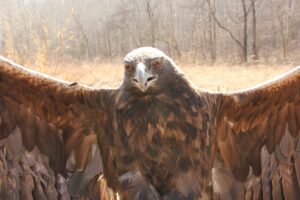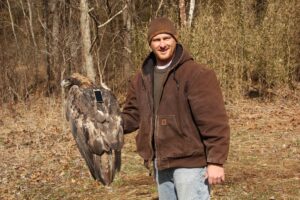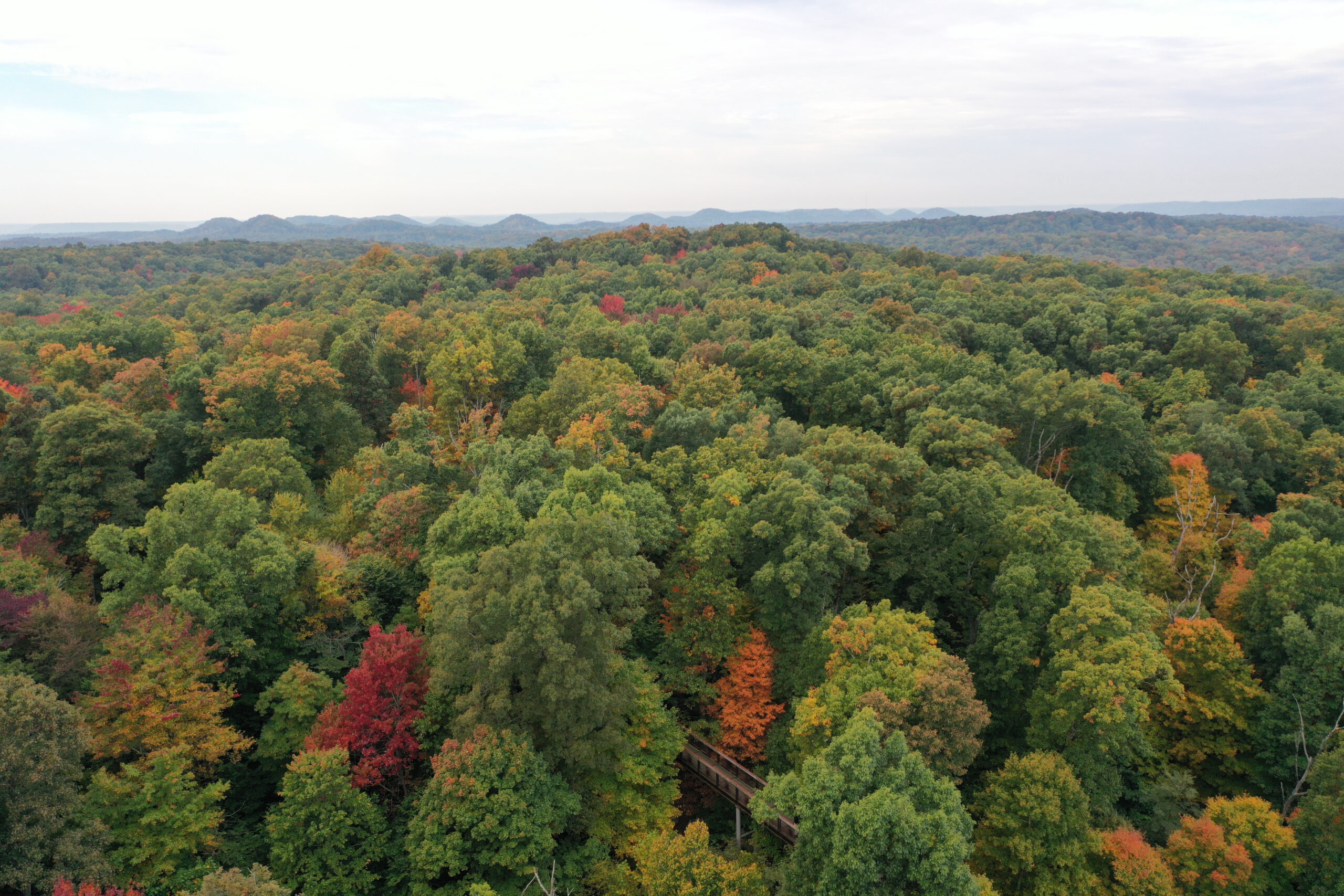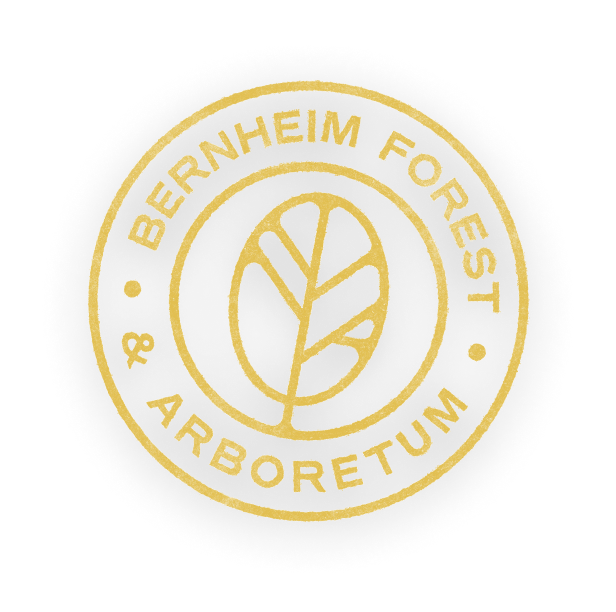By Bernheim

As a part of the Year of the Bird. which celebrates the 100th anniversary of the Migratory Bird Treaty Act, Bernheim is pleased to announce our continued research into one of our rarest winter migrants, the golden eagle. In February, we teamed with Cellular Tracking Technologies and Conservation Science Global to fit one of our resident eagles with a transmitter. Our monitoring had confirmed that several golden eagles were spending time in Bernheim Forest this winter. To our surprise, we captured Harper, the same eagle whose migration into Canada we followed during breeding season in 2015.
In 2015, a popular vote named the eagle Harper, which is a nod to Mr. Bernheim’s whiskey brand I.W. Harper. We followed his migration from Bernheim in the winter to northern Manitoba, Canada, where we believe he spent the summer before returning to Bernheim. We were able to get tracking data from February –June, 2015, when he shed his tracker. The data we collected even in that short period allowed us to gain valuable information into his winter habits in the knobs, the path of his spring migration, and a glimpse of his chosen summer habitat.

On March 9, 2018, Harper began the 1500-mile northern migration after spending several weeks in Bernheim and the surrounding knobs. Through tracking Harper, we can gain new insights into the long-term use of habitats by a golden eagle in Bernheim Forest and beyond.
Bernheim has studied golden eagles through field observations for the last 20 years, and for the last 10 years with motion detecting cameras. Through these methods, we knew of six individual eagles that spent the winter in the large forest blocks of Bernheim and its adjacent knobs, some even staying primarily within Bernheim. Our cameras tell us that other golden eagles migrate through and only stop in the area for a short period of time.
His 2018 journey north is not yet complete, but follow along here as we update his locations. Click here to follow him on his journey and see how his route differs from 2015.
This effort is partially funded by the Beckham Bird Club. We thank this wonderful organization for their support!

